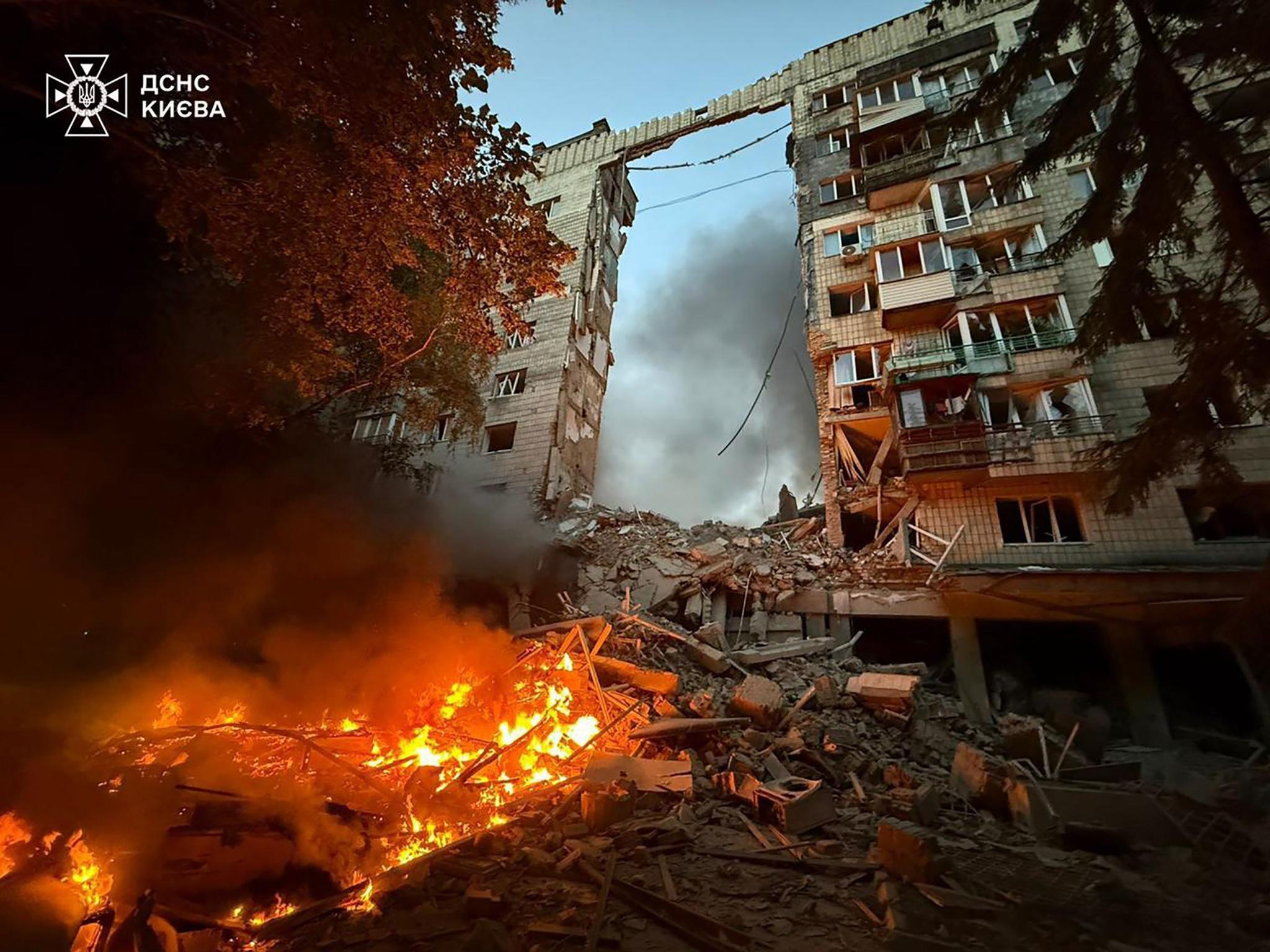
A handout photo released by the press service of the State Emergency Service (SES) of Ukraine shows rescuers working at the site of an airstrike on a residential area in Kiev, Ukraine, 17 June 2025, amid the Russian invasion.
Rescuers in Kiev were on Wednesday sifting through the rubble and pulling bodies from destroyed apartment blocks after a major Russian attack on the Ukrainian a day earlier.
The city's mayor and emergency services said the missile and drone strikes had killed at least 28 people in one of the most deadly attacks on Kiev since Russia invaded more than three years ago.
More than 130 people were also wounded.
AFP journalists saw rescue workers in helmets carrying victims in body bags out of the blown-out main door of a residential building.
Construction machinery was being used to scoop up the rubble.
"Currently, 28 Kiev residents are confirmed dead. Rescue workers are still working at the sites of destruction," Kiev Mayor Vitali Klitschko said on social media.
The state emergency services gave the same toll, saying 23 of those killed were in a single nine-storey building.
Russia launched dozens of drones and missiles at Kiev early Tuesday in what President Volodymyr Zelensky called "one of the most horrific attacks" on the capital of the three-year war.
Zelensky said 440 drones and 32 missiles were launched in the strikes nationwide and urged the international community not to "turn a blind eye".
The Russian defense ministry said it had conducted precision strikes on "military-industrial facilities in the Kiev region," in a statement similar to those released after other major attacks.
More than three years into its full-scale invasion of Ukraine, Moscow has stepped up attacks despite efforts by the United States to broker a ceasefire.
Talks have stalled.
Moscow has rejected the "unconditional" truce being pushed by Kiev and its European allies, while Ukraine has dismissed Moscow's demands that it cede more territory and renounce Western military support as "ultimatums".